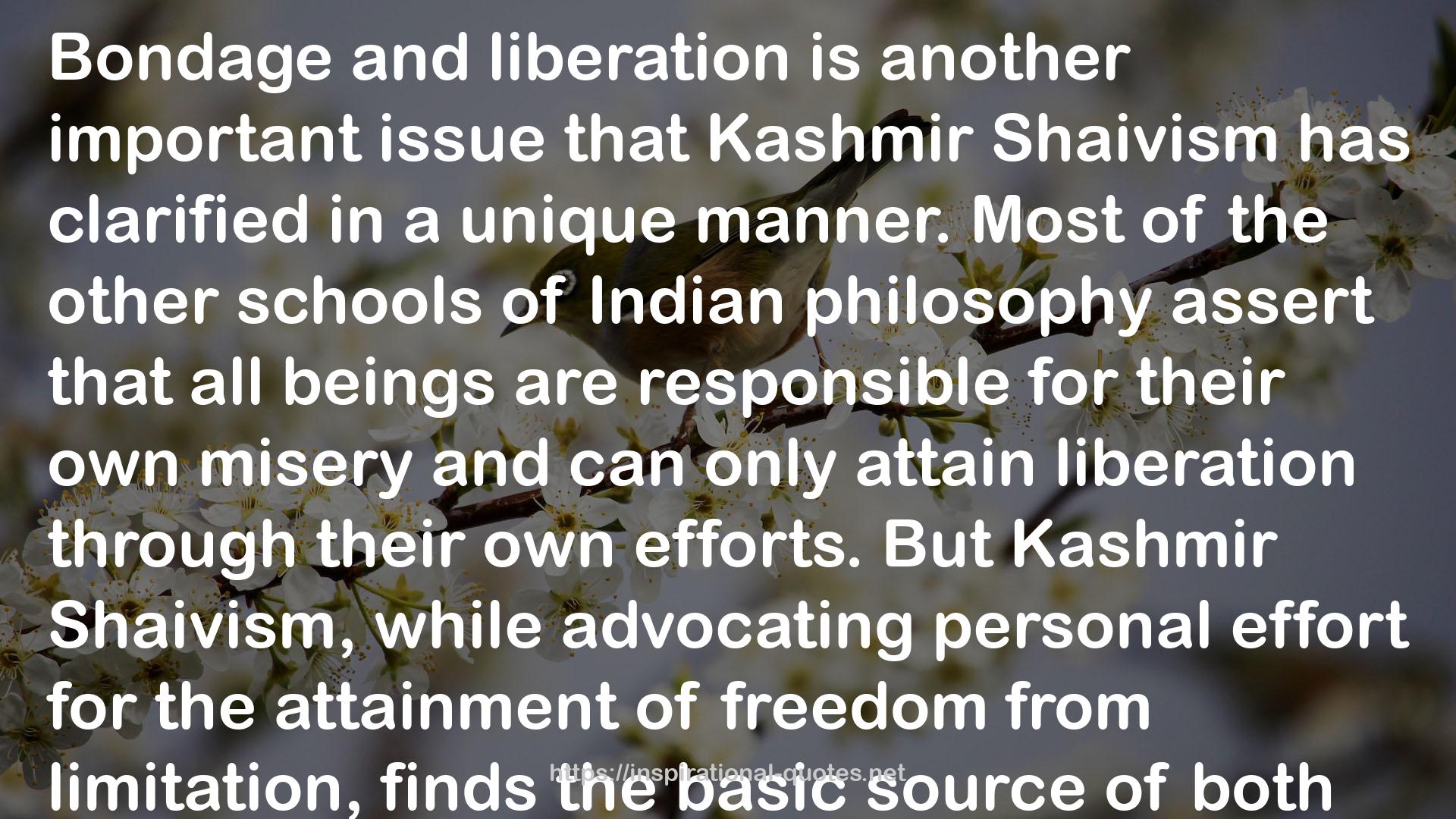" Bondage and liberation is another important issue that Kashmir Shaivism has clarified in a unique manner. Most of the other schools of Indian philosophy assert that all beings are responsible for their own misery and can only attain liberation through their own efforts. But Kashmir Shaivism, while advocating personal effort for the attainment of freedom from limitation, finds the basic source of both bondage and liberation in the divine creative expression of God. In this philosophy, the world and our lives are often described as a divine drama or play in which Paramasiva is the sole producer, director, and cast of characters. He is everything wrapped up in one. It is He who, in the initial parts of His divine play, obscures His divinity and purity, appears as an ordinary person with limitations, and becomes progressively denser and more ignorant as a result. But in the final part of this play, He bestows His divine grace on the person He appears to be. This person then turns away from misery, becomes interested in spiritual philosophy, comes into contact with a teacher, receives initiation into spiritual practices (sadhana), attains correct knowledge of the theoretical principles of absolute non-dualism, practices yoga, and develops an intense devotion for the Lord. Finally this person recognizes that he is none other than the Lord Himself.
— B. N. Pandit, Specific Principles of Kashmir Shaivism (3rd ed., 2008), p. xxii "
― Balajinnatha Pandita , Specific Principles of Kashmir Saivism
